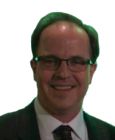Health
Therapy, the Effective Kind
Are Americans getting the mental health treatment they need?
Posted September 9, 2015
By Dean McKay, Ph.D., and Scott O. Lilienfeld, Ph.D.
Imagine that a close friend has been suffering from a longstanding psychological condition. His symptoms are severe and agonizing, damaging his work and intimate relationships.
The most effective treatment for his disorder has been known for over three decades, so you would reasonably assume that he could obtain it from any licensed mental health professional. Your assumption would likely be wrong.
Meet Jerry.
Jerry (not his real name) contacted one of us, reporting that he was experiencing unbidden and frightening thoughts that he might harm someone; that he had elaborate rituals that led him to lock doors in a precise order; and that when driving he routinely retraced his route to assure himself that he had not run over someone. Jerry was aware he suffered from obsessive-compulsive disorder (OCD).
Jerry carefully researched his condition and identified the best treatment for it: exposure and response prevention (ERP), an intervention that systematically exposes individuals to stimuli that make them anxious (such as thoughts of an unlocked door), while preventing them from performing responses that alleviate their anxiety (such as checking whether the door is unlocked). ERP teaches people with OCD to confront and tolerate their anxiety until it diminishes. It has been found to be effective in dozens of controlled studies for this disorder, which was identified by the World Health Organization as one of the top ten handicapping disorders in terms of lost income and decreased quality of life.
Even though Jerry lives in large metropolitan area with hundreds of therapists, it took him three years and five false starts in therapy before he could find a provider who delivered this treatment properly. Many said they were not qualified, and others were not adequately trained.
Sadly, Jerry’s frustrating journey is hardly unusual.
Today, professionals delivering mental health services are not required to administer therapies grounded in the best available scientific evidence. In the case of OCD, survey data reveal that only a fraction of therapists administer ERP despite its impressive research base. For example, in 2012, psychologists Leilani Hipol and Brett Deacon surveyed 51 licensed therapists in Wyoming, and found that fewer than a third conducted ERP for OCD. Disturbingly, most therapists preferred treatments with little or no scientific support.
One encounters the same story for virtually all other psychological disorders. Most individuals suffering from serious mental health problems are receiving grossly suboptimal treatment, or no treatment at all. Consider that up to half of people who suffer from major depression do not receive treatment, and fewer than 10 percent of those who do receive care consistent with best scientific evidence. This silent scandal has precluded hundreds of thousands of Americans with mental health problems from receiving much-needed help for their psychological anguish.
Fortunately, there is growing recognition that mental health consumers deserve greater guidance regarding what does and does not work.
Following the lead of the Institute of Medicine, the American Psychological Association is now constructing treatment guidelines for mental disorders. These guidelines are slated to appear nearly 20 years after the publication of criteria for empirically supported psychological treatments (ESTs), which identify effective interventions for virtually all major psychological disorders. The newly emerging clinical practice guidelines are intended to lay out best practices in treatment for a wide range of disorders and to identify interventions that are not scientifically supported.
There is now a precedent for similar treatment guidelines. In 2008, the U.K. launched similar treatment guidelines: The Improving Access to Psychological Therapies program, to expand access to scientifically based treatments for mood and anxiety disorders. Since the program was launched, the percentage of individuals receiving empirically based treatments for these conditions nearly tripled—to 13.5 percent—from the levels prior to the initiation of the program. This is still a disturbingly low percentage, but it is a vast improvement over the pre-program levels. One other goal of the program was to reduce reliance on psychiatric medications. Although medications can be helpful for certain conditions, especially psychotic disorders, they work only for as long as one takes them. In contrast, many ESTs exert enduring effects that extend beyond treatment.
Can the U.S. achieve comparable—or higher—levels of scientifically informed psychological treatment to those in the U.K.? Presently, there are a vast array of untested treatments available—some 600 different psychotherapies. Many treatments, like ERP, are surely helpful, whereas others are probably useless or even harmful. Moreover, some therapists have resisted the scientific evaluation of their interventions: For them, psychotherapy is more of an art than a science. Although there is certainly an artistic element to psychotherapy, the attitude that treatment outcome should be immune from objective scrutiny would not be tolerated in traditional medicine. Nor should it be tolerated for psychological conditions, many of which are associated with serious social and occupational disability, along with a dramatically heightened risk for suicide and other forms of premature death.
The adoption of the new clinical practice guidelines is probably our field’s best hope for placing long overdue pressure on therapists to incorporate scientifically based approaches into their clinical practices. Practice guidelines would also assist mental health consumers with the daunting task of selecting more effective treatments.
By now, you might be wondering what happened to Jerry. After his five ineffective experiences in treatment, he responded well to ERP. Although he still struggles with OCD from time to time, his symptoms have since significantly remitted, his marriage is substantially better, and his career has been on an upward trajectory.
Not all stories of individuals receiving mental health treatment end nearly this happily. Yet far more would if effective therapies were more widely available to those in desperate need of them.
Dean McKay is professor of psychology at Fordham University and past president of the Association for Behavioral and Cognitive Therapies. Scott O. Lilienfeld is the Samuel Candler Dobbs Professor of Psychology at Emory University. The writers are members of the Public Education and Media Committee of the Society for a Science of Clinical Psychology, which is Section 3 within Division 12 (Society of Clinical Psychology) of the American Psychological Association (APA). Nevertheless, the authors’ views do not necessarily reflect those of APA.




